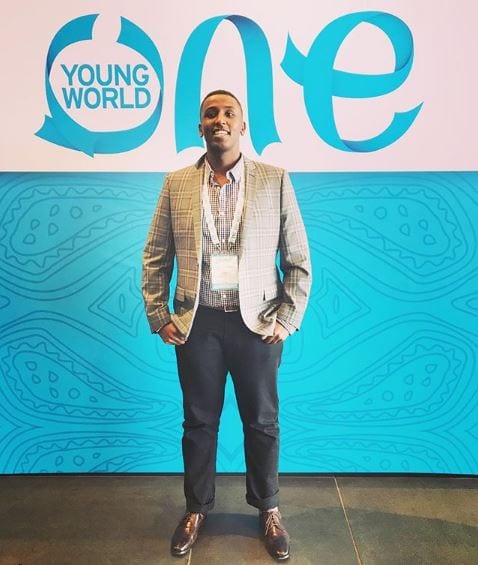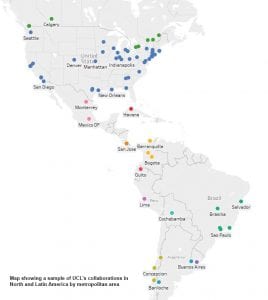Why I’m proud to be a UCL student making a difference on the world stage
By zchaael, on 27 November 2017
 Growing up, I never imagined that at the age of 21 I would be given the opportunity to fly to Colombia to join the likes of Kofi Annan, Bob Geldof, and others to debate how we tackle world issues. Yet, a month ago I was honoured to represent not only the United Kingdom but also UCL at the ‘One Young World Summit’ in Bogotá, Colombia.
Growing up, I never imagined that at the age of 21 I would be given the opportunity to fly to Colombia to join the likes of Kofi Annan, Bob Geldof, and others to debate how we tackle world issues. Yet, a month ago I was honoured to represent not only the United Kingdom but also UCL at the ‘One Young World Summit’ in Bogotá, Colombia.
As the first generation of diaspora, born in the UK but with parents from Somalia, I feel well placed to represent the reconciled interests of both my motherland and my country of birth, and I enjoyed sharing my experiences with a similarly diverse group of people.
Championing the need for support of minority voices was one of the key messages I took from the summit. Sir Bob hailed the next generation as the key to solving global issues, while Denise Young Smith, Apple’s Vice President of diversity and inclusion, impressed the need for young people to have a role model. They certainly hit the nail on the head.
Mentoring has made a real difference to me so I was thrilled to hear these inspirational voices talk about the value this can add to someone’s life. Having access to the support of community groups such as Bright Education Centre combined with sheer dogged determination lead me to the successes I have achieved so far.
I now work as an Outreach Manager for Bright Education Centre to encourage others to achieve their aspirations, by running educational workshops and coordinating university advice days. Crucial to this communal effort is providing young people with opportunities to maximise their potential, and provide alternatives to the culture of crime prevalent in so many London boroughs.
It is equally important to harness our fortuity to help those abroad. Just recently Somalia was hit with the most fatal attack in the country’s history. A truck bomb planted in the centre of Mogadishu claimed the lives of over 350 men, women and children with hundreds seriously injured. The scale of the attack makes it one of the worst terrorist attacks in the world. Rescue workers said a definitive death toll may never be established because the intense heat generated by the blast meant that the remains of many people will never be found.
Somalis are resilient against violent extremism. But this is different. Everyone in the city has lost someone or knows someone who was injured. Some of those who died were described as the breadwinners; as a result, many families are suffering. Two weeks ago, I led a fundraiser and I made a pledge along with many other young people that evening. I pledged to not only stand with those suffering at the hands of this horrendous attack but to also raise £1000 for the cause. The amount I raise will go towards African Relief Fund, a charity on the ground helping the sufferers recover from the attack.
So please join me in my attempt to help the victims of this senseless attack. Please share the following link and donate: https://www.gofundme.com/bvxx9p-mogadishu-attack-appeal
It’s not an easy fact to acknowledge, but the truth is that millions of people across the world are looking to us for assistance. And although some may feel like our contributions could never be as far reaching as to impact those on other continents, I demand you rethink.
This collective effort requires individuals from every age, race, ability and walk of life. I am fully aware that the capabilities of any individual is limited, but as long as we unite as one, there is no difficulty we cannot overcome.
Abdulkadir Elmi | @abdulelmi
 Close
Close







